Home

PCOS & PCOD

PCOS Acne: The Ultimate Guide to Causes, Treatment and Management
In this Article
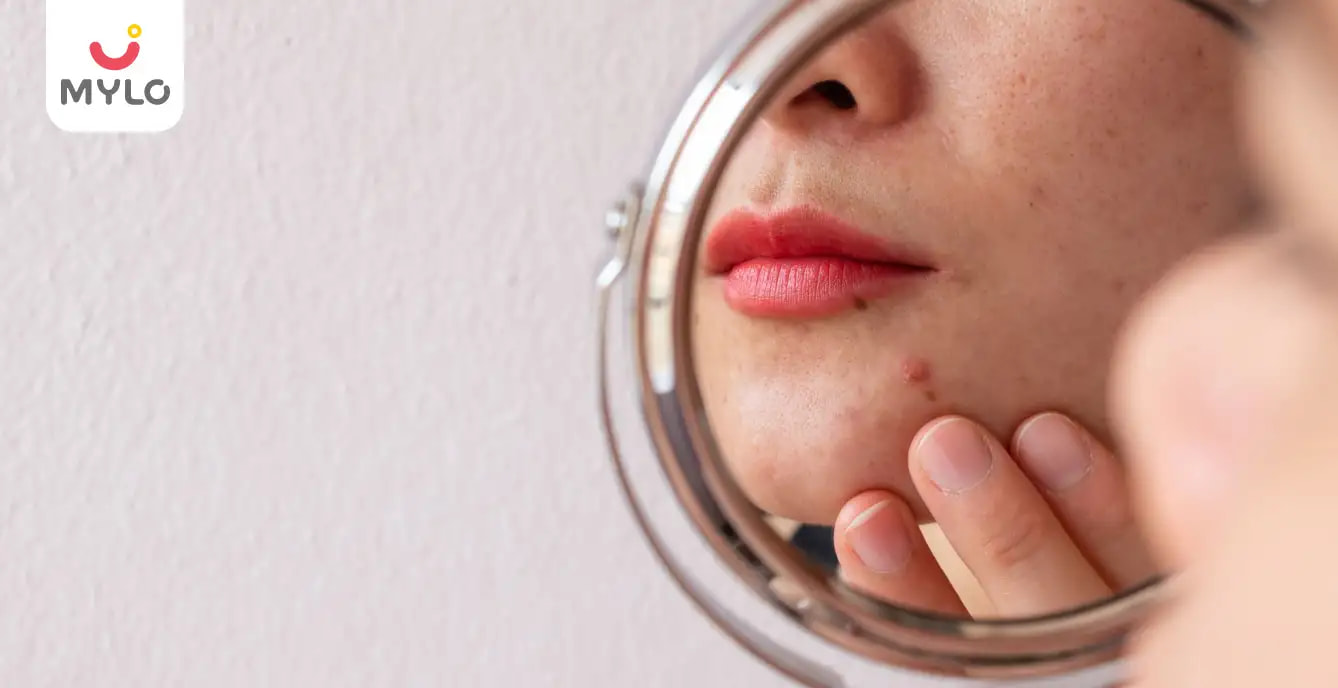
PCOS & PCOD
PCOS Acne: The Ultimate Guide to Causes, Treatment and Management
Updated on 21 August 2023



Medically Reviewed by
Dr. Shruti Tanwar
C-section & gynae problems - MBBS| MS (OBS & Gynae)
View Profile

As Avni stood before the mirror, she couldn't help but wonder why her skin seemed to be waging a war against her. Frequent breakouts and acne scars had left her frustrated and disheartened. But little did she know that her skin struggles were all related to PCOS acne.
So, if you too are grappling with this skin-related manifestation of PCOS or seeking insights for a loved one, this guide will help provide insights on the relation between PCOS and acne, PCOS acne pattern, its causes, medications and skincare routines, home remedies for PCOS acne and PCOS acne diet.
What is the Relation Between PCOS and Acne?
Polycystic ovary syndrome (PCOS) is a hormonal disorder that affects many women worldwide. One of the most common symptoms of PCOS is acne. The connection between PCOS and acne is rooted in the hormonal imbalances that occur in women with PCOS.
PCOS is characterized by an excess production of androgens, which are male hormones. These hormonal imbalances can lead to an overproduction of sebum, the oily substance that clogs pores and causes acne. Additionally, the elevated androgen levels can stimulate the production of skin cells, leading to a buildup of dead skin cells and clogged pores.
Acne in PCOS is often more severe and persistent than regular acne. It tends to occur along the jawline, chin, and lower face. Understanding the relationship between PCOS and acne is crucial in finding effective treatment options.
What Causes Acne in PCOS?
The exact cause of acne in PCOS is still not fully understood. However, here are some common reasons that can be attributed to it:
1. Hormonal Imbalance
PCOS is characterized by an imbalance in hormone levels, particularly an excess of androgens (male hormones) such as testosterone. This hormonal imbalance can lead to an overproduction of sebum, an oily substance that clogs the pores and contributes to the development of acne.
2. Insulin Resistance
Insulin resistance is a common feature of PCOS. When the body becomes resistant to the effects of insulin, it compensates by producing more insulin. Elevated insulin levels can stimulate the production of androgens, leading to increased sebum production and acne.
3. Inflammation
PCOS is often associated with chronic low-grade inflammation in the body. Inflammatory substances can stimulate the sebaceous glands to produce more sebum, which can contribute to the development of acne.
4. Increased Skin Sensitivity
Women with PCOS may have increased sensitivity to androgens in their skin cells. Even normal levels of androgens can trigger an exaggerated response, leading to the development of acne.
5. Genetics
There is evidence to suggest that PCOS and acne may have a genetic component. If a close family member, such as a mother or sister, has PCOS or a history of acne, the risk of developing PCOS-related acne may be higher.
It's essential to address these underlying causes to effectively manage and treat PCOS acne.
What are the Different PCOS Acne Patterns?
Acne during PCOS can present in various patterns, and understanding these patterns can help in identifying the condition and determining the appropriate treatment strategy.
1. Hormonal Acne
This is the most common pattern of acne in PCOS and typically appears along the jawline, chin, and lower face. It is often characterized by deep, cystic acne lesions that are painful and slow to heal.
2. Comedonal Acne
Comedones are non-inflammatory acne lesions that include blackheads and whiteheads. Women with PCOS may experience an increased number of comedones, especially on the forehead and nose.
3. Inflammatory Acne
In some cases, acne can manifest as red, inflamed pimples and pustules. These lesions can be more widespread and may occur on the cheeks, temples, and other areas of the face.
Identifying the specific acne pattern can help healthcare professionals tailor the treatment approach to address the underlying causes and provide targeted therapies.
You may also like : PCOS Self Care: How to Nurture Your Body and Mind
PCOS Acne Treatment
Effective treatment options for PCOS-related acne involve addressing the underlying hormonal imbalances, reducing inflammation, and regulating sebum production. A comprehensive approach that combines medications, skincare routines, home remedies, and dietary modifications can yield the best results.
Medications and Skincare Routine
Topical treatments, such as retinoids, benzoyl peroxide, and salicylic acid, can help reduce inflammation and unclog pores. Prescription medications like oral contraceptives and anti-androgen drugs may also be recommended to regulate hormone levels and control acne.
Establishing a consistent skincare routine is crucial for managing PCOS acne. Gentle cleansing, exfoliating, and moisturizing can help maintain healthy skin and prevent clogged pores. It is important to use non-comedogenic products that won't further aggravate acne.
You may also like : PCOS Natural Treatment: The Ultimate Guide to Natural Remedies for PCOS
Home Remedies for PCOS Acne
In addition to medical treatments, there are several home remedies that can aid in managing PCOS-related acne. These remedies can help reduce inflammation, control sebum production, and promote overall skin health.
1. Tea Tree Oil
Known for its antibacterial properties, tea tree oil can be applied topically to reduce acne-causing bacteria and inflammation.
2. Apple Cider Vinegar
Diluted apple cider vinegar can act as a natural toner, helping to balance the skin's pH, reduce oiliness, and prevent acne breakouts.
3. Aloe Vera
Applying aloe vera gel to acne-prone areas can soothe inflammation, promote healing, and reduce redness.
It's important to note that home remedies may not work for everyone, and it's always advisable to consult with a healthcare professional before trying any new treatments.
You may also like : PCOS Hair Loss: The Ultimate Guide to Causes, Symptoms, and Treatment
PCOS Acne Diet
Dietary modifications can also play a role in managing acne caused due to PCOS. A balanced diet that includes foods rich in antioxidants, vitamins, and minerals can support overall skin health and reduce inflammation.
Foods to include in a PCOS acne diet:
-
Fruits and vegetables
-
Whole grains
-
Lean proteins
-
Healthy fats, such as avocados and nuts
Foods to avoid or limit:
-
Processed foods
-
Sugary snacks and beverages
-
High glycemic index foods
Maintaining a healthy weight and managing insulin resistance through diet and exercise can also help improve PCOS symptoms, including acne.
Key Takeaways
PCOS acne is a common and frustrating symptom of polycystic ovary syndrome. PCOS acne treatment involves addressing the underlying hormonal imbalances, reducing inflammation, and regulating sebum production. Medications, skincare routines, home remedies, and dietary modifications can all be part of an effective treatment plan.
References
1. Chuan SS, Chang RJ. (2010). Polycystic ovary syndrome and acne. Skin Therapy Lett.
2. National Guideline Alliance (UK). (2021). Management options for people with acne vulgaris and polycystic ovary syndrome: Acne vulgaris: management: Evidence review G. London: National Institute for Health and Care Excellence (NICE)





Medically Reviewed by
Dr. Shruti Tanwar
C-section & gynae problems - MBBS| MS (OBS & Gynae)
View Profile


Written by
Anupama Chadha
Anupama Chadha, born and raised in Delhi is a content writer who has written extensively for industries such as HR, Healthcare, Finance, Retail and Tech.
Read MoreGet baby's diet chart, and growth tips

Related Articles
Related Questions
Hello frnds..still no pain...doctor said head fix nhi hua hai..bt vagina me pain hai aur back pain bhi... anyone having same issues??

Kon kon c chije aisi hai jo pregnancy mei gas acidity jalan karti hain... Koi btayega plz bcz mujhe aksar khane ke baad hi samagh aata hai ki is chij se gas acidity jalan ho gyi hai. Please share your knowledge

I am 13 week pregnancy. Anyone having Storione-xt tablet. It better to have morning or night ???

Hlo to be moms....i hv a query...in my 9.5 wk i feel body joint pain like in ankle, knee, wrist, shoulder, toes....pain intensity is high...i cnt sleep....what should i do pls help....cn i cosult my doc.

Influenza and boostrix injection kisiko laga hai kya 8 month pregnancy me and q lagta hai ye plz reply me

RECENTLY PUBLISHED ARTICLES
our most recent articles

Diet & Nutrition
Maggi in Pregnancy: Is It Safe to Enjoy Your Favorite Instant Noodles?
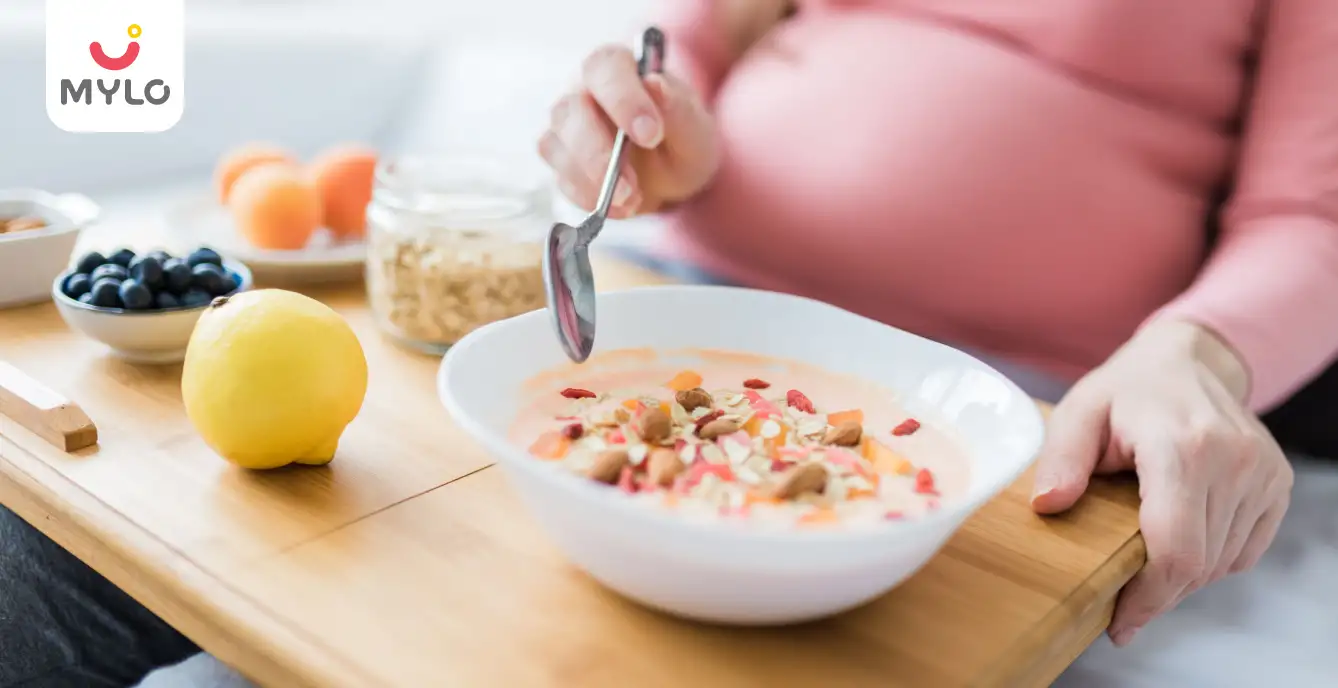
Diet & Nutrition
Oats During Pregnancy: A Winning Combination for Both Mom and Baby
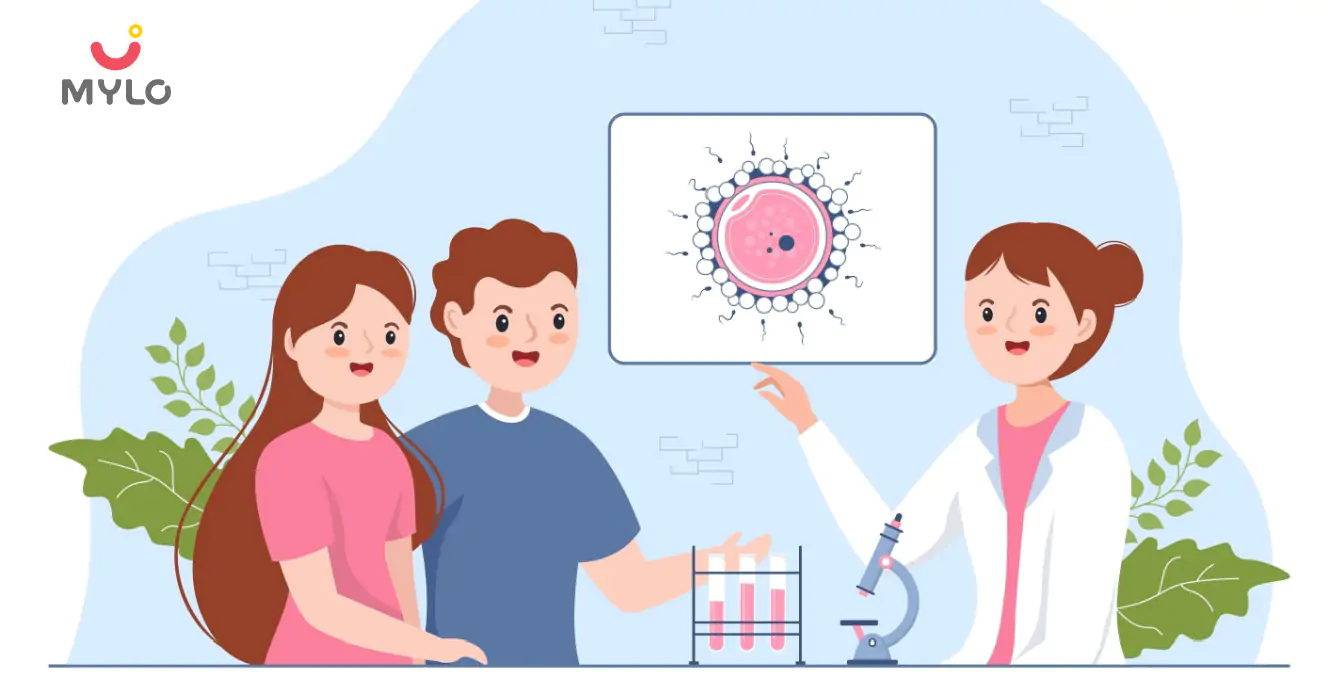
In Vitro Fertilization (IVF)
Types of IVF, Their Benefits and Side Effects Everything You Need to Know..
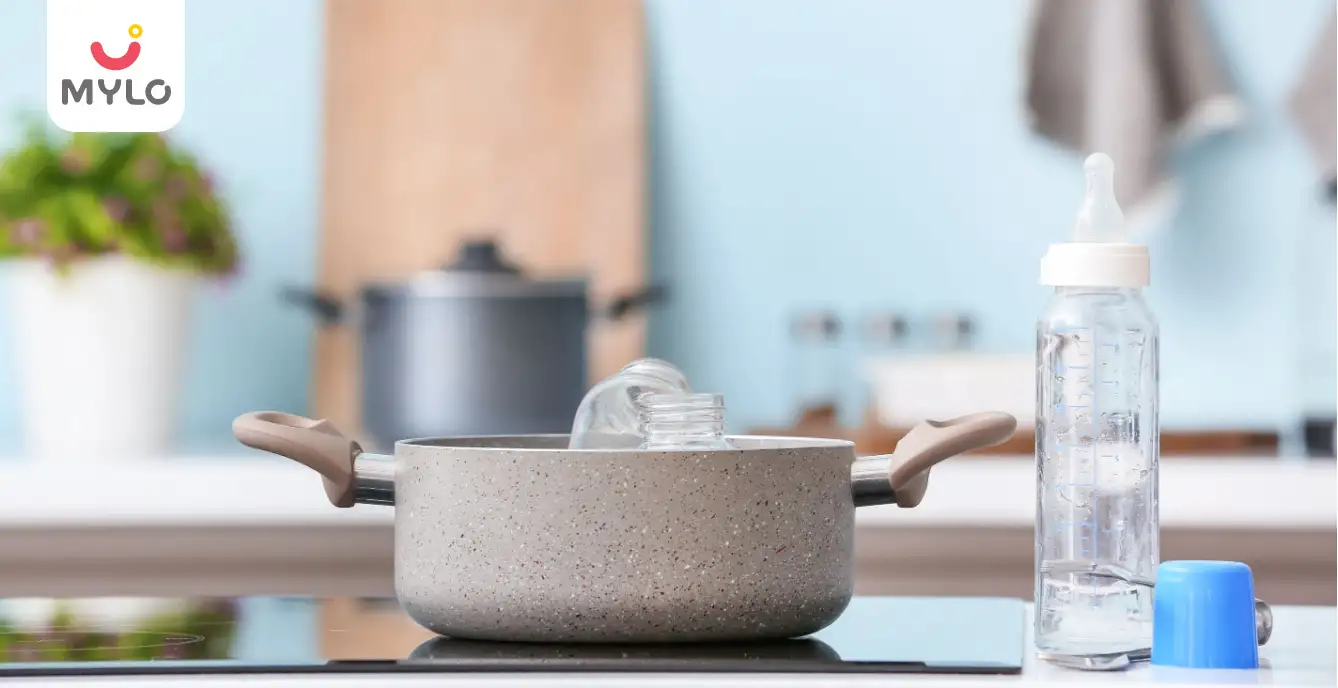
Feeding from a Bottle
How to Sterilize Baby Bottles: The Ultimate Step-by-Step Tutorial
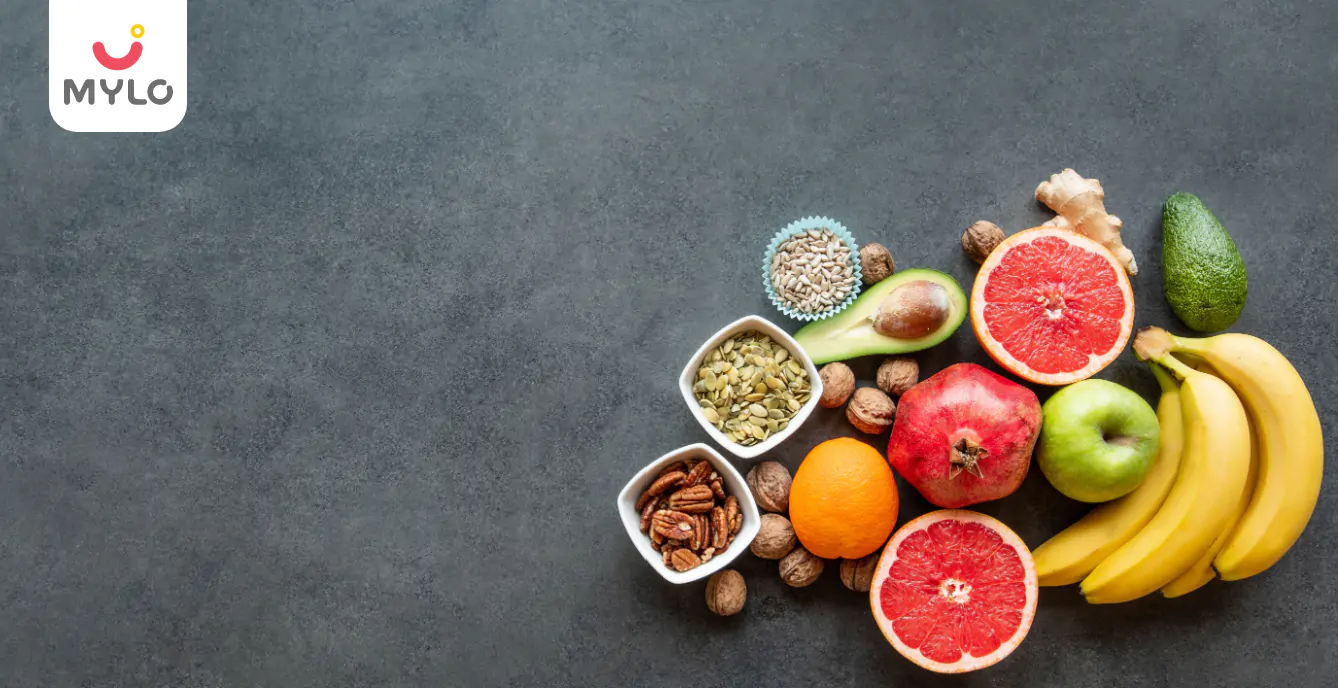
Diet & Nutrition
What to eat when trying to conceive
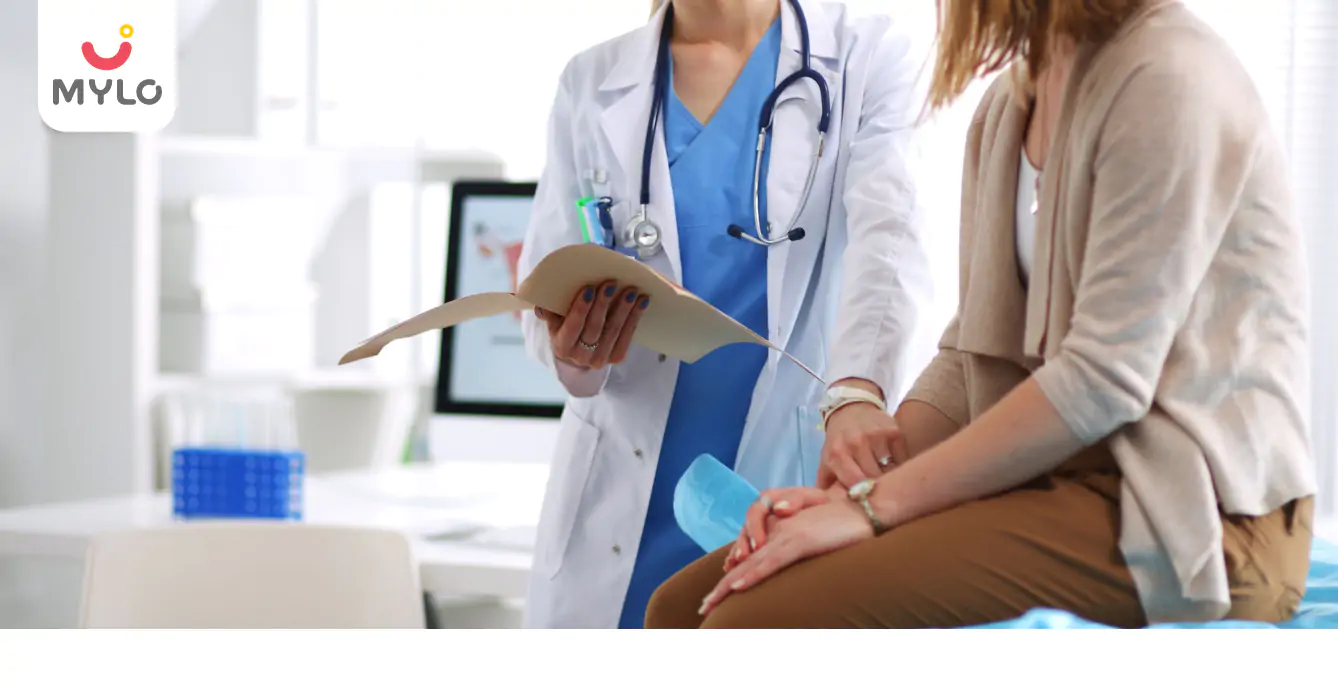
White Discharge
White Discharge After IUI: Is It Normal & When to See a Doctor
- Diet & Exercises Your Wife Can Follow During Pregnancy
- Can a diet plan help deal with infertility in women and boost the chances of conception?
- How to Sterilize Breast Pump: A Comprehensive Guide for New Moms
- Bronchiectasis Meaning in Hindi | ब्रोन्किइक्टेसिस क्या होता है?
- The Ultimate Guide to Teej 2023: Celebrations, Traditions, and Dates
- Should I Pee After Sex if Trying to Get Pregnant? And 5 Other FAQs
- Menorrhagia: A Guide to Understanding Heavy Period Bleeding (Part 1)
- Indigestion and Heartburn During Pregnancy
- Understanding Follicular Study: A Comprehensive Guide to Female Fertility
- Maternity Fashion: How to Dress in Style in Each Trimester of Your Pregnancy?
- Oligomenorrhea: What Every Woman Needs to Know About Irregular Periods
- Can a Woman with Thyroid Problems Get Pregnant: Conceiving Against the Odds
- Adenomyosis Vs Endometriosis: How to Spot the Symptoms and Seek Early Intervention
- Fertility Test for Men and Women: What to Expect and Next Steps


AWARDS AND RECOGNITION

Mylo wins Forbes D2C Disruptor award

Mylo wins The Economic Times Promising Brands 2022
AS SEEN IN

- Mylo Care: Effective and science-backed personal care and wellness solutions for a joyful you.
- Mylo Baby: Science-backed, gentle and effective personal care & hygiene range for your little one.
- Mylo Community: Trusted and empathetic community of 10mn+ parents and experts.
Product Categories
baby carrier | baby soap | baby wipes | stretch marks cream | baby cream | baby shampoo | baby massage oil | baby hair oil | stretch marks oil | baby body wash | baby powder | baby lotion | diaper rash cream | newborn diapers | teether | baby kajal | baby diapers | cloth diapers | laundry detergent 6472 | lactomama lactation granules |




